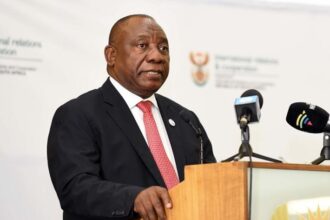Basic Education Minister Siviwe Gwarube has confirmed that implementing the Basic Education Laws Amendment (Bela) Act is now her constitutional duty, even as consultations continue on two contentious clauses. Gwarube clarified her stance while addressing a question from DA MP Delmaine Christians, who questioned whether she had requested President Cyril Ramaphosa to refer the Bela Act back to Parliament. The Act was signed into law last month, with a three-month consultation delay on clauses addressing language and admission policies in schools.
Gwarube’s Commitment to Implementing the Act
In her response, Gwarube emphasized her duty to implement laws passed by Parliament. “The Minister must ensure that the Bela Act is properly implemented in the best interests of learners,” her office stated, promising collaboration with the department to establish regulations and national policies aligned with the Act’s provisions.
Gwarube’s office also revealed that she had previously raised concerns with Ramaphosa about elements within the Act, such as the compulsory inclusion of Grade R, school governing body policies, and centralized procurement. The President subsequently introduced a three-month delay on language and admission clauses to allow further consensus-building among interested parties.
Ongoing Debate Over Bela Act
The Bela Act has faced substantial opposition, with protests erupting on Monday against the legislation. Concerns are particularly focused on how language and admissions policies would be managed, potentially limiting school governing bodies’ control.
The ANC study group on basic education, however, characterized the protests as misguided, stating that the Act does not threaten mother-tongue education but rather seeks to increase language inclusivity. The ANC insists that governing bodies will retain authority over language policies, which are subject to departmental approval in line with the Constitution. “The ANC Study Group on Basic Education urges the President to enact all sections of the Bela Act immediately,” it stated.
Opposition Parties Call for Consultation
The Democratic Alliance (DA) has called for patience with Ramaphosa’s commitment to additional consultations on the Act. DA national spokesperson Willie Aucamp argued that rushing the process would undermine the government’s commitment to unity. He criticized the Act as inadequate in addressing the deep-seated issues in South African education, citing the quality of schools as the sector’s primary challenge.
The Solidarity Movement also urged Ramaphosa to allow discussions to continue, stressing that resolving issues through dialogue would yield a more balanced implementation of the Bela Act.
A Path Forward for the Bela Act
While Gwarube’s office remains firm on implementing the Act, the division among political leaders and stakeholders over its language and admissions policies suggests that further discussions may be crucial for long-term consensus. For now, Minister Gwarube is tasked with balancing her duty to enforce the law while navigating the ongoing debate surrounding its controversial provisions.











